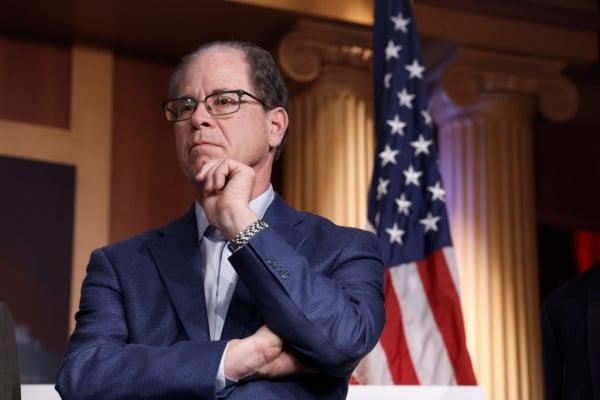Martin University, the only predominantly Black institution in Indiana, started receiving state funding two years ago—a welcome $5 million cash influx for the enrollment-starved private university.
But this year, Republican governor Mike Braun left the university out of his proposed 2025–27 budget. The decision sparked outrage among Democratic lawmakers who view the omission as part of Braun’s broader anti-DEI agenda.
“I won’t mince my words: It’s racist,” state representative Gregory Porter, a Democrat, said in a statement. He told Inside Higher Ed he was shocked and “highly disappointed” by the move. “We never saw it coming,” he said.
Porter sees the decision as linked to Braun’s executive order, issued earlier this month, banning state funding for diversity, equity and inclusion efforts. The order also requires all executive-branch state agencies to follow the Supreme Court’s 2023 decision against affirmative action in college admissions and bans government offices from mandating diversity statements as part of their hiring processes.
Congressman André Carson, an Indiana Democrat representing Martin’s district, also described the two moves as part of the same policy agenda. “The decision to withdraw funding from Martin University and eliminate state DEI programs rejects what’s best” for state residents “in favor of dangerous, inaccurate, [and] partisan talking points,” he wrote on X.
Martin University wasn’t the only noteworthy omission. The College Success Program, an academic support service for low-income and minority students administered by the Indiana Commission for Higher Education, was also conspicuously missing from Braun’s proposed budget. The program, launched in 2023, sent student success coaches to about two dozen campuses.
Indiana’s previous Republican governor, Eric Holcomb, proposed $10 million for Martin University in his 2023–25 budget, but the sum was split evenly between the College Success Program and Martin in a final budget deal with state lawmakers.
The current governor’s office didn’t respond to questions from Inside Higher Ed by publication time about why Martin University and the College Success Program lost funding. On Wednesday morning, a spokesperson for the governor’s office sent this statement: “Martin University is a private university that received a one-time allotment in the last budget cycle. In fact, the president of Martin University informed the Governor’s office that the university knew it was one-time funding, did not ask for additional funding, and does not expect to be included in this budget.” The university did not respond to follow-up questions.
Braun had been promising a leaner overall budget. His proposed biennial budget would reduce state government spending by 5 percent, roughly $700 million, over the next two years. “I always talk about doing more with less. And that’s not because you’re trying to be stingy,” Braun said in a media briefing. “It’s because that’s called productivity.”
The budget isn’t final. Debate will stretch on through April, when lawmakers must pass a final version.
Porter isn’t giving up on Martin getting its slice. “We’re going to pursue it, respectfully yet aggressively, to try to get it in the budget,” he said. It’s “all hands on deck.”
Martin’s Financial Future
The state funding was handy for Martin while it lasted.
The university says the $5 million bestowed on it in the 2023–25 budget went toward recruiting and retaining students and bolstering and expanding specific programs, like Martin WORKS, the university’s apprenticeship program.
E. ZeNai Savage, the university’s chief financial officer and executive vice president of finance and administration, said in an email that university administrators understood at the time that the grant might be a one-time windfall. “As with most grants, they are not guaranteed year over year,” he said.
Leaders say the institution can get by without the funds if necessary. “The additional budgetary funding provided by the state has been a helpful resource in supporting our mission,” Joseph Perkins, chair of Martin University’s Board of Trustees, said in a statement. But “the withdrawal of state funding does not mean that the university lacks funding.”
A 2023 independent audit report, however, suggests the university’s financial situation may be precarious. The report found that Martin faced “enrollment challenges” and “larger operational needs” in the aftermath of the pandemic as well as “substantial doubt” about “the University’s ability to continue as a going concern.” The total student body, which is more than 80 percent Black, consists of roughly 250 students, according to 2022–23 academic year enrollment data from the National Center for Education Statistics. The Indy Star reported the university enrolled 522 students in fall 2013.
“The university continues to rebound from the effects of Covid, as with most institutions,” Savage said. “We remain steadfast in our mission and will continue to serve with the same dedication and excellence.”
But Porter worries for the university’s financial future without funding from the state. “It’s going to cast a huge dark shadow on Martin with regards to their economics and their moving forward,” Porter said. As a small institution, “Martin should not have to tighten their belt at that level.”
Some supporters of historically Black and predominantly Black colleges also see the governor’s move as an ominous sign for minority-serving institutions across the country amid an onslaught of anti-DEI legislation.
Demetrius Johnson Jr., the founder, president and CEO of the HBCU Campaign Fund, an advocacy organization for HBCUs and other minority-serving institutions, said in a statement that he found Martin’s loss of state funding “quite concerning.” As efforts to crack down on diversity, equity and inclusion work ramp up—including President Trump’s executive order eliminating DEI in federal agencies—Johnson said it’s important to “remain vigilant about the potential impact” on HBCUs and minority-serving institutions “regarding DEI programs and funding at both the state and federal levels.”
“We stand behind [the] Martin University Board of Trustees and President Huddleston during this challenging time,” Johnson said of the university’s leaders. “We will remain steadfastly supportive of Martin University and engage in communication with elected officials to safeguard its mission and vision.”
This story has been updated.








